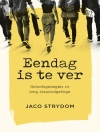Aspects of the 2017 Final Report of the South African Commission on the Promotion and Protection of the Rights of Cultural, Religious and Linguistic Communities (CRL) have drawn strong criticism, particularly from South African scholars, politicians and the public. The criticism is largely regarding the constitutionality of its recommendation, which calls for regulation of the Religion to combat its abuse and commercialization. Scholars have criticized the CRL Rights Commission for hastening its investigation and releasing the final report without having a substantive understanding of what is meant by the commercialization of religion, and consequently the unconstitutional implications of the recommendation, to regulate religion. A close reading of this critique has pointed to the urgent need to assemble a cumulative body of research that examines and advances understanding of what is meant by the commercialization of religion. Accordingly, this book gathers scholarly contributionswhich offer valuable insights into the basics of what is meant by the commercialization of religion. Contributors examine this phenomenon from the historical roots to the manifestation in the contemporary world, particularly in South Africa.
Зміст
Chapter 1: Introduction.- Part 1 : The use of Biblical texts in perpetuating the commercialisation of religion.- Chapter 2: A Piece Of Silver For The Man Of God To Tell Us The Way To Go (1 Sam 9:6-13). -Chapter 3: Serving money over God in Matthew 6:24. – Chapter 4: “The love of money is ‘NOT’ the root of all evil”: some Neo-Pentecostal pastors contradicting 1 Timothy 6:10 in support of materialism.- Part 2: Prosperity gospel and the commercialisation of religion.- Chapter 5: The business practices of Africa’s prosperity teachers.- Chapter 6: Newschapter Opinion Pieces on Prosperity Gospel in South Africa: Critical Reflections, Representations, and Ideology.- Chapter 7: Manipulation of the prosperity message through the sales of sacred products.- Part 3: The economic challenges and commercialisation of religion.- Chapter 8: Socio-economic conditions: The rationale behind the financial abuses.- Chapter 9: The Gospel and Money.- Chapter 10: The riches ofsome Neo-pentecostal pastors versus ‘Moruti le tlala’.- Chapter 11: Community empowerment in contrast to individual success among Neo- Pentecostal pastors in South Africa.- Part 4: Theological reflections and implications on the commercialisation of religion.- Chapter 12: Commercial Praxis within Neo-Pentecostal Churches: A Practical Theological Assessment.- Chapter 13: Let us make God in our own image: Reflections on uncommon practices in some Neo-Charismatic/Pentecostal Churches in South Africa.- Chapter 14: The impact of the African traditional belief systems on congregants in promoting commercialisation of Christian religious services.- Part 5: The commercialisation and the regulation of religion.- Chapter 15: The violation of the South African Revenue Services by some Neo-Pentecostal pastors .- Chapter 16: Regulating inimical religious practices and protecting religious freedoms: Practical realities and a constitutional conundrum.
Про автора
Mookgo Solomon Kgatle is a Professor at the Department of Christian Spirituality, Church History and Missiology, University of South Africa, and a National Research Foundation (NRF) Y-Rated researcher (2019-2024) in African Pentecostalism.
Sello Jonas Thinane is a post-doctoral fellow at the University of South Africa and has published several peer-reviewed chapters in the discipline of missiology.
Chammah J. Kaunda is Assistant Professor of World Christianity and Mission Studies at the United Graduate School of Theology, Yonsei University, Korean Republic. He is also an Extraordinary Professor at the University of the Western Cape in South Africa, and a Research Fellow for the Southern African Institute for Policy and Research.












